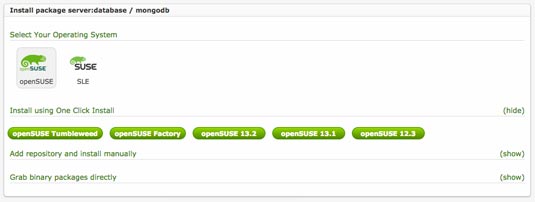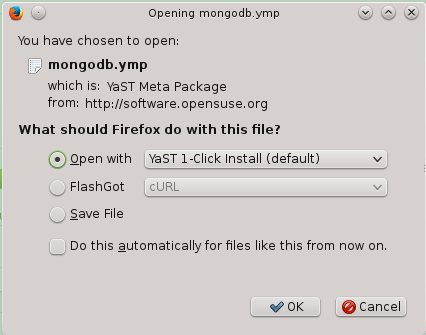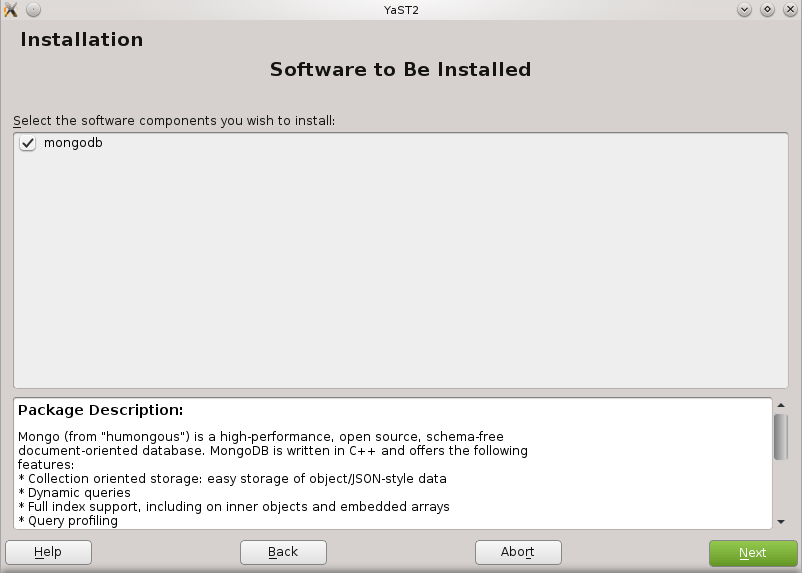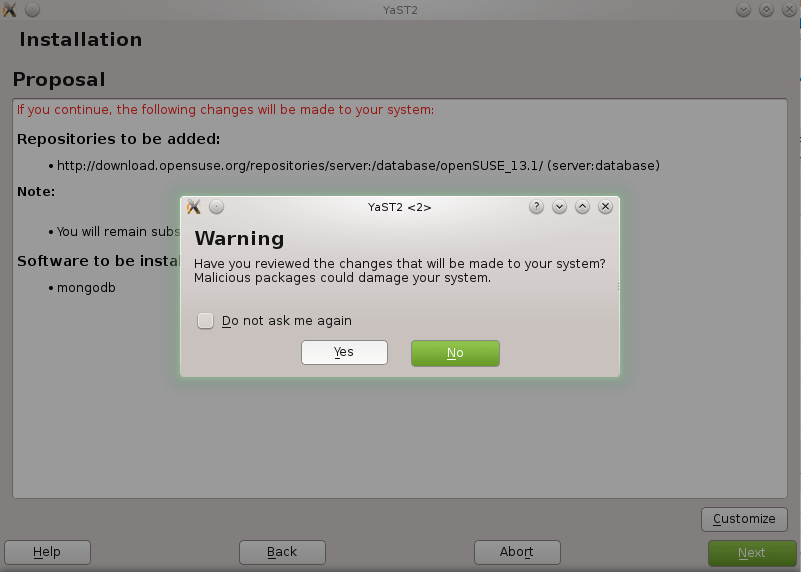Install MongoDB on openSUSE 13.x
How to Install and Quick Start with the MongoDB NoSQL Database for Linux openSUSE 13.X KDE/Gnome desktop.
MongoDB (from “humongous”) is an Open-Source Document Database written in C++, and the leading NoSQL database.
MongoDB Database Features:
- Document-Oriented Storage >> JSON-style documents with dynamic schemas offer simplicity and power.
- Full Index Support >> Index on any attribute, just like you’re used to.
- Replication & High Availability >> Mirror across LANs and WANs for scale and peace of mind.
- Auto-Sharding >> Scale horizontally without compromising functionality.
- Querying >> Rich, document-based queries.
- Fast In-Place Updates >> Atomic modifiers for contention-free performance.
- Map/Reduce >> Flexible aggregation and data processing.
- GridFS >> Store files of any size without complicating your stack.
- Professional Support by MongoDB >> Enterprise class support, training, and consulting available.



